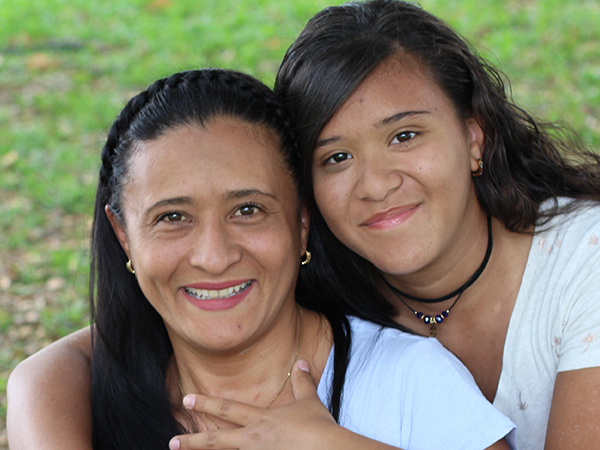Indigenous American Ancestry May Be Associated with Aggressive Breast Cancer Subtype
A new study finds that Latina women with a higher proportion of Indigenous American ancestry may be at increased risk of being diagnosed with HER2-positive breast cancer.

Breast cancer is the most commonly diagnosed cancer and the leading cause of cancer-related death among women, accounting for more than 6 percent of all cancer-related deaths worldwide.
While non-Hispanic white women have the highest incidence rates, the risk of breast cancer-related mortality varies between different populations, with Latina women having a greater risk of breast cancer-specific mortality than non-Hispanic white women, according to Laura Fejerman, PhD, associate professor of medicine at the University of California San Francisco.
Several factors may contribute to the higher risk of breast cancer-specific death among Latinas, including access to health care, environmental exposures, and breast cancer subtype.
“Latina women tend to be diagnosed with more aggressive breast cancer subtypes, which may contribute to their greater risk of mortality,” Dr. Fejerman explained.
Breast cancers are classified into subtypes based on the status of hormone receptors and the human epidermal growth factor receptor 2 (HER2). These receptors respond to factors outside the cell and promote cellular proliferation.
Breast cancers that have higher than normal levels of HER2 are referred to as HER2-positive breast cancers and tend to grow more aggressively than some other subtypes. HER2-positive breast cancers are more common in Latina women than in non-Hispanic white women, according to a 2018 study published in Cancer Epidemiology, Biomarkers & Prevention, a journal of the American Association for Cancer Research (AACR). The underlying reasons for this difference remain unclear.
In a new study published in the AACR journal Cancer Research, Dr. Fejerman and colleagues examined whether Indigenous American ancestry could be associated with an increased risk for HER2-positive breast cancer.
The study included 1,312 individuals from Peru, a country with extremely high proportions of Indigenous American ancestry. Analyses of genome-wide genotype data revealed that the odds of having a HER2-positive tumor were 1.19 times higher for every 10 percent increase in Indigenous American ancestry. Similar results were observed in smaller cohorts from Colombia and Mexico.
“The association between Indigenous American ancestry and HER2 status suggests that population-specific variants of Indigenous American origin could be partly contributing to the higher incidence of HER2-positive breast cancer in Latinas,” said Dr. Fejerman. “Our ongoing research aims to identify the specific germline variants that may lead to this association.”
This information could eventually be incorporated into a risk prediction model for Latina women to identify those at high risk for certain subtypes of breast cancer, explained Dr. Fejerman. Understanding the genetic basis of the observed association could also help researchers understand the biology of the disease, which could eventually lead to new treatments, she added.
“Even though humans are mostly the same, there are differences between populations that affect disease risk and outcome,” said Dr. Fejerman. “This study highlights the importance of studying diverse populations and collaborating with other countries. We need to understand diverse populations so that we may someday be able to provide precision cancer prevention and care to everyone, and not just a subset of the population.”
